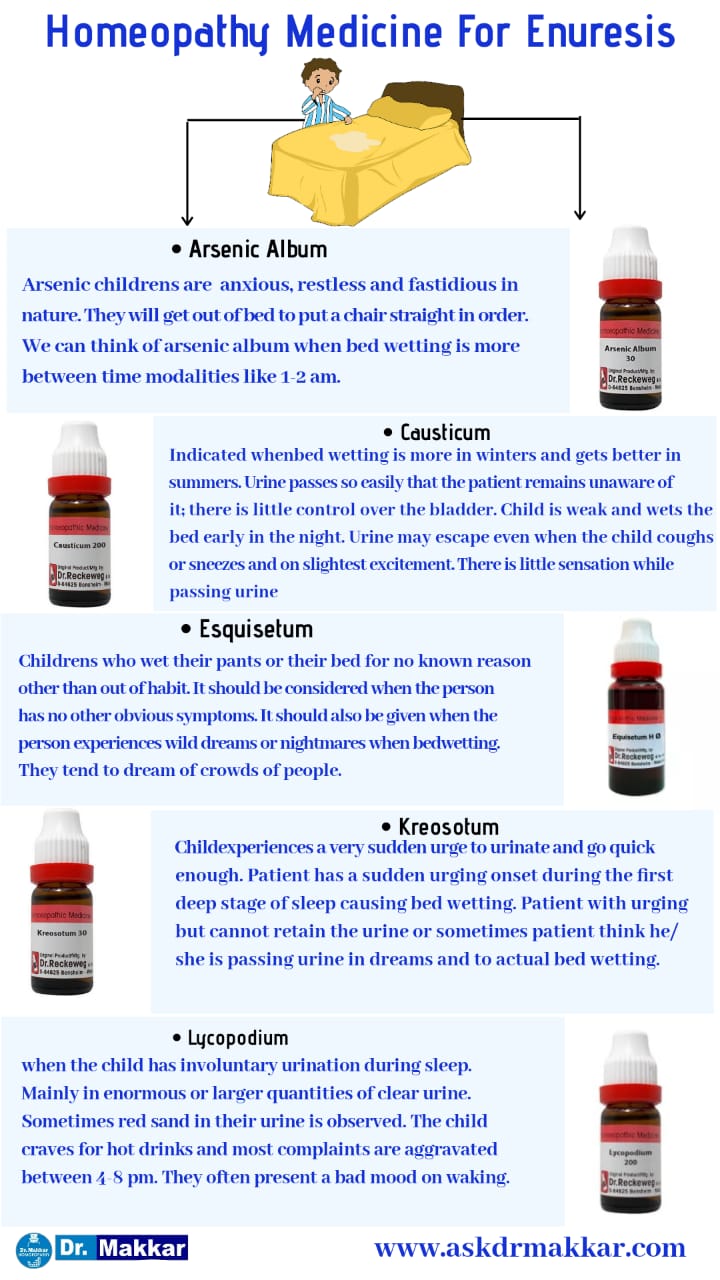
Argentum-nit [Arg-n]
Incontinence of urine at night and also in daytime; urine passed unconsciously and uninterruptedly; too profuse flow of pale urine; great nervousness and restlessness.
Belladonna [Bell]
Restless sleep with sudden starts; moaning and screaming during sleep; involuntary micturition when deeply asleep, generally after MIDNIGHT AND TOWARDS MORNING; scrofulous glandular enlargements
Benzoic-acid [Benz-ac]
Enuresis noturna (after failure of Nitr.), urine highcolored, strongly ammoniacal, irritating and smelling like throat of horses; suits growing girls.
Causticum [Caust]
Involuntary micturition when coughing, sneezing or blowing nose; at night when asleep (DURING FIRST SLEEP); in cold weather during day and night; sweat on genitals; burning in urethra when urinating, and stitches in orifice of urethra; chronic swelling of tonsils.
Equisetum hyme [Equis]
ENURESIS FROM HABIT, day and night; dreams of seeing crowds of people.
Ferrum-met [Ferr]
Incontinence more FREQUENT IN DAYTIME THAN AT NIGHT (weakness of sphincter) or FLOODS THE BED SEVERAL TIMES AT NIGHT; urine light- colored, or the ammoniacal smell of the urine stains the linen dark; claycolored yellowish sediment, adhering to the sides and bottom of the vessel.
Kreosotum [Kreos]
Great difficulty to waken the child out of his sleep; he wets the bed when he DREAMS THAT HE IS URINATING IN A DECENT MANNER, it wakes him up finally, but he cannot retain it, (<) when lying down, (>) when walking or standing; teeth decay early.
Squilla [Squil]
Especially for strumous or cachectic children who are troubled with worms; inability to retain the urine on account of abnormal irritation of the lining membrane of the bladder, often of rheumatic origin.
Sulphur [Sulph]
Disagreeable sensation of hunger with flashes of heat (11 A.M.); pale, lean children, with large abdomen, who love sugar and highly seasoned food and abhor to be washed; (<) after midnight.